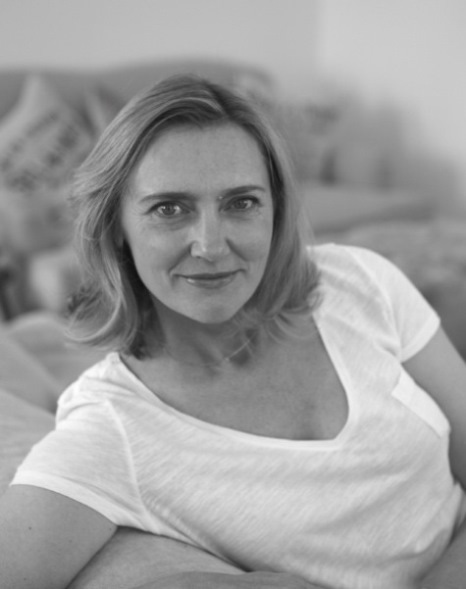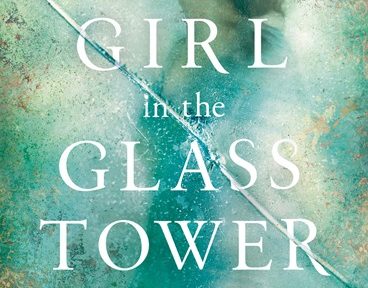This post was contributed by Valeria Melchioretto. This summer the Birkbeck Creative Writing department launched its new website The Mechanics’ Institute Review Online. This year marks a huge success for the Creative Writing MA as ten alumni have novels coming out this year.
To celebrate these achievements we are profiling a selection of the authors and extracts from their upcoming novels will appear on MIROnline. Here, Valeria speaks with alumnus Elizabeth Fremantle, about her novel, The Girl in the Glass Tower (Penguin, June 2016)
Read an extract of the book at MIROnline
VM: Congratulations on your latest novel The Girl In The Glass Towerwhich is due out in June and thanks very much for taking the time to answer a few questions. All your novels are set in the Tudor era and focus on remarkable women who actually lived at that time. What made you write about these heroines in the first place?
 EF: I became interested in early modern women when I was studying for my BA in English at Birkbeck. A course that explored women’s writing from the renaissance period opened my eyes to some of the first English women to publish their own original work. This helped me to understand the ways in which women were able to find their voices in a wholly misogynistic culture that expected female silence and obedience.
EF: I became interested in early modern women when I was studying for my BA in English at Birkbeck. A course that explored women’s writing from the renaissance period opened my eyes to some of the first English women to publish their own original work. This helped me to understand the ways in which women were able to find their voices in a wholly misogynistic culture that expected female silence and obedience.
Katherine Parr, the protagonist of my first Tudor novel, was one of these women and I wanted to bust the notion of her as the dull nursemaid of popular Protestant myth and show her as the intelligent, courageous and dynamic woman she really was. All the women I write about lived remarkable lives that have been altered, or overlooked by a history that privileges male narratives and it has been my aim to, at least in some small way, redress that balance by reimagining their stories.
You must be a very prolific writer as this is your fourth published novel within just over two years. How did this extraordinary magnum opus come about? Did you approach an agent with all four novels ready to go or did you have one novel and wrote the other three as part of a publishing deal?
It’s misleading really, as it makes it seem as if I write two books a year. This is not actually the case. Queen’s Gambit was already finished when I signed my first three-book deal with Michael Joseph/Penguin in 2012 and by the time that was published a year later I had finished work on the next. My pattern is to write a book a year and The Girl in the Glass Tower is the first of a new four-book deal with the same publishers.
I already had an agent when I decided to work on the historical novels and had been, unsuccessfully, writing contemporary fiction. The change of focus helped me finally find my voice and I benefitted from a good deal of support and encouragement from my agent.
There is a huge demand on novels about the great and the good of the Tudor era, from the works of Sansom to Gregory and of course Mantel. Why do you think readers seem so keen to engross themselves into the lives of a well known elite from so long ago, or to put it differently, do you ever feel the pressure of having to fulfil readers’ expectations?
Why the Tudors continue to fascinate is a question people ask all the time and there is no single answer. The period marked the beginning of our modern world; it was a time of great upheaval, the Reformation forced people to reconsider beliefs that had gone unquestioned for hundreds of years and it marked a fundamental societal change. It was a time of great cultural flourishing in poetry and drama, which still resonates to this day, and also saw the first explorations to the New World.
As someone who is preoccupied with women’s stories I have found great inspiration from being able to listen in to authentic women’s voices from the first writings by women I mentioned above. For a writer it is a world in which the stakes are stratospherically high which creates a constant tension in any narrative.
There are of course the constraints of accuracy as the narrative arch is fixed by history itself. How do you manage to reclaim these characters and make them your own?

Elizabeth Fremantle
I don’t really think about that when I set out to write. I do a great deal of research and then set it all aside so I can build my characters from the inside out. Character is, after all, formed from inaccessible inner worlds. I may know some of the actions of the real life counterparts of my characters and the way they responded to others’ actions, or I may have read a line in a letter that sparks something in my mind, which in turn transforms into a trait that can be built on. But these people derive as much from my imagination as the historical record. I aim for accuracy in the overarching narrative but for me the historical facts are a framework on which to hang my characters.
How do you get so much writing done? Do you set yourself a daily word target or is it about having an ideal working environment? What’s your secret?
My secret is a very dull one: it’s nothing more mysterious than discipline. I work all the time and rarely take time off. There is nothing I’d rather be doing. I do find that a daily word count helps with my tight writing schedule. My absolute minimum is 1,000 words but if I haven’t written 1,500 in a day I’m not happy. I edit as I go along, reviewing the previous days’ work on the following morning and absolutely must be at my own desk, surrounded by all my reference books.
In which way do you think the MA has prepared you for your career as a writer?
I think one of the key things I derived from the MA was an understanding of the difficulty of the path I had chosen but also to take myself seriously as a writer. The truth is though, that it was only the beginning. The only way to develop ones craft is to practice it ceaselessly and that I did, for some time before I finally found my voice.
What has been the most challenging step on your way towards publication?
The decade of perpetual rejection, when I was writing but couldn’t find a home for my work. In hindsight I realize this period was an important part of my development as a writer but I could have done with it being less prolonged.
Your list of forthcoming events seems very busy at the moment. What is it like to come face to face with your readers?
It’s always a pleasure to meet the people who have read your work, though I get very nervous about public speaking.
Can you tell us about your forthcoming writing project(s)?
I’m working on a Jacobean thriller at the moment called The Poison Bed. It is set around the circumstances of a notorious murder in the Tower of London, which scandalized England and remains, to this day, something of a legal mystery. It will be my first crime novel. It is a new process for me as the structure and pace, as much as character, are key to making it work. Usually character is the cornerstone of my work, so this is different, though it has many of the characteristics of my other novels. I’m very excited about it and am thoroughly enjoying exploring a new genre and stretching myself creatively.
…
Also by Elizabeth Fremantle ‘Watch the Lady’, ‘Sisters of Treason’ and ‘Queen’s Gambit’ all published by Penguin.
Elizabeth Fremantle is the author of four novels all published by Penguin. She has a BA in English and an MA in creative writing from Birkbeck, University of London and has contributed to various publications including The Sunday Times, Vogue, Vanity Fair, The Financial Times and the Wall Street Journal. She also reviews fiction for The Sunday Express. She lives in London.

Valeria Melchioretto
Valeria Melchioretto is the author of Podding Peas and The End of Limbo. She received a bursary from the Arts Council. In 2012 she represented Switzerland at the Poetry Olympics at the South Bank and won the ‘New Writing Ventures’. She holds an MA in Creative Writing from Birkbeck and a MA in Fine Art.

